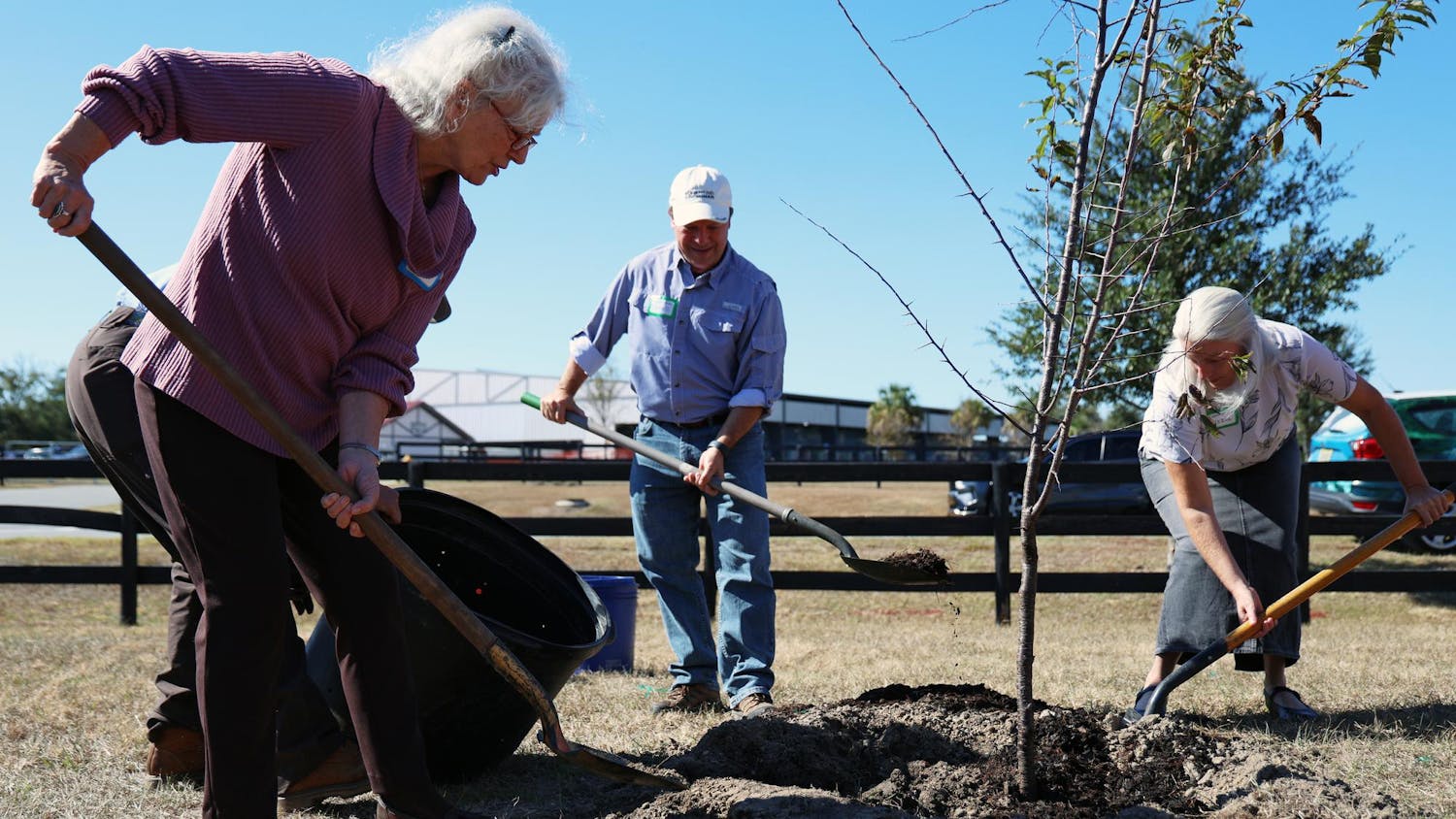To combat the dwindling freshwater supply, UF scientists are teaming up with universities across the nation to develop more efficient ways to water crops.
Eric McLamore, an associate professor in the Department of Agricultural and Biological Engineering at the UF Institute of Food and Agricultural Sciences, said the schools are working on an open-source library called SmartPath.
UF specifically is working with George A. Smathers Libraries on SmartPath. Farmers would use the data to pick which type of water works best for them and use it to water their crops.
The group is looking at three different water types as alternatives to fresh water: brackish water, untreated pond water and secondary treated water from wastewater treatment plants. The group will see if any of these options are as effective in irrigating crops.
McLamore compared growers browsing the library to shopping on Amazon and said growers would have a wide range of options to choose from, including what others have worked with.
The library will have data about water combinations that would reduce the amount of fresh water used when irrigating crops based on where in the country the crops were being grown.
Using alternatives would limit water use on farms and allow unused water to be used for drinking, McLamore said.
The development of SmartPath is important because of the rapid urbanization of society. More agriculture is being done in high-population areas, and that type of farming requires more water than traditional agriculture. Currently, about 70 percent of freshwater used in the world goes toward agriculture as a whole.
Once the new technology is implemented on farms, sensors will be placed in the pumps distributing the water and in the water itself. The sensors will determine how much water is being used and how much is needed.
The sensors will send the information to another device, which will then process the information and make real-time adjustments to manage the water being dispersed.
This technology already exists in things like pool filters, which contain sensors that read water quality and levels, but it has not been used to the level this project is requiring.
“The question is, ‘Can this same technology be applied to a farm?’” McLamore said. “You’re going from 17,000-gallon pool to 17-million-gallon (farms).”
Kati Migliaccio, professor and chair of agricultural and biological engineering at IFAS, said in an email interview the project demonstrates the future of agriculture and uses resources smartly. She is in charge of the extension effort of the project and is an expert in water conservation and irrigation.
Migliaccio said there aren’t any growers lined up to start the project yet. However, an advisory board has been established that will outline the vision for the project.
UF is working with Texas A&M University, Iowa State University, the University of Wisconsin and the University of Maryland Eastern Shore to develop the technology. The schools were awarded a five-year, $5 million grant from the U.S. Department of Agriculture to fund the project.
However, there are some challenges associated with the project.
McLamore said one of the biggest concerns for growers is staying economically sustainable when switching irrigation methods. If farmers are losing money by adopting the new technology, they won’t want to continue using it.
Another concern is fecal matter contamination in the freshwater alternatives. Brackish, secondary-treated water and pond water all contain microorganisms that would create feces in the water. A microorganism that is notably dangerous is known as Vibrio and can be harmful to humans.
Farmers also need to be able to use the technology and be able to understand how it works. McLamore said the system will be designed to be as user-friendly as it needs to be so growers who are not as adept with technology are able to manage the system.





